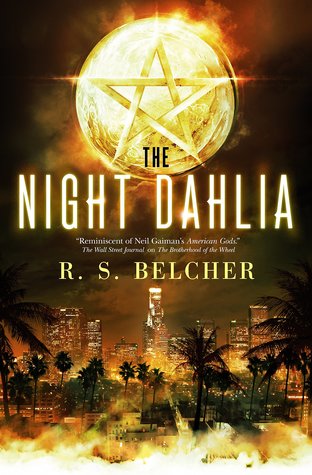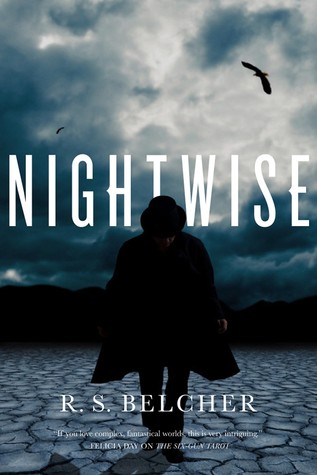Today we are excited to host an guest post from R. S. Belcher, author of The Night Dahlia. Sub genres can feel somewhat nebulous at times, so we are very grateful and happy to help get this clearer explanation on what differentiates Noir Fantasy. And as an added bonus, we also have a GIVEAWAY, so be sure to scroll to the bottom and enter. Noir Fantasy: Cynicism in a World of Magic by R.S. Belcher Before we get our knuckles bloody, I wanted to thank the wonderful folks at the Speculative Herald for the privilege of allowing me time and space to talk about the genre of Noir Fantasy and about my new book, The Night Dahlia, coming out April 3rd from Tor Books. The Night Dahlia is the second novel in my “Nightwise” series. The Nightwise books are Noir Fantasy (with some Hardboiled genre thrown in too, but that’s a post for another day). But what exactly distinguishes Noir Fantasy from say Urban Fantasy? In one word, one of my favorite words: cynicism. Noir’s origin references back to a 1945 french pulp magazine and to crime movies of the 1940s and 50s. I think the noir atheistic may have come…
I loved the first two books in Rod Belcher’s Golgotha series, and I was curious to see what else he could do. And boy am I glad I picked up this book! I was blown away by his fascinating magic system, not to mention the characters. Best of all, Belcher has some mad writing skills, in case you appreciate that sort of thing, which I do. While his Golgotha books contain multiple points of view, this story is told in first person from the perspective of Laytham Ballard, a powerful wizard with an attitude problem, who blazes through his friends and enemies—often killing them in the process—in order to get what he wants. Belcher definitely takes a risk with Laytham, because he is not a likeable guy at all. But the fact that he freely admits to everyone around him that he knows he’s an a-hole made him compelling, and yes, I grew to like and even sympathize with him by the end of the book. But there is so much to love about Nightwise besides the characters—and I’ll get to them later, because there wasn’t one in the bunch that I didn’t enjoy. Belcher starts with a simple but strong…


